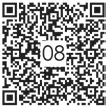历史选择了英语
⊙ By Nina Porzucki
翻译:T Boy
历史选择了英语
⊙ By Nina Porzucki
翻译:T Boy
English: The Language of Choice for Science

美式发音 适合精听
语速:175词/分钟

“为什么国际科学界基本上都用英语交流呢?”“因为英国曾经是强大的‘日不落帝国’,英语的影响无所不在。”小编做了个小范围调查,大部分人都这么回答。这听起来确实是一个很合理的解释,可惜是错的。上个世纪初,英语最多只有三分之一的机会主宰国际科学界,但历史在一百年前拐了个弯,为英语创造了千载难逢的机会……
Host: We wondered, how is it that so many scientists all over the world write in English.
Let’s go back before 1900. I mean, when I went to school, I…all the1)taxonomy of species was in2)Latin. I mean, doctors still use Latin to describe3)anatomy. So, when did Latin lose out?
1) taxonomy [tæk'sɒnəmɪ] n. 分类学;(动、植物)分类
2) Latin ['lætɪn] n. 拉丁语;adj. 拉丁语的
3) anatomy [ə'nætəmɪ] n. 解剖,解剖学
4) somewhat ['sʌm,hwɒt] adv. 有几分,略
Michael Gordin (Prof. at Princeton): Latin’s place in the history of science is4)somewhatstrange. It was, of course, the universal language of communication in Western Europe from the late Medieval Period, say around 13th century, until about the mid-17th century, and then it started to5)fracture. It started to become one of many languages in which science was done.
Host: So, fast forward now, to 1900. We’ve got the three possible languages that could win out to6)dominate science, or maybe a mix, as you say, of all three, French, German and English. What were some of the7)geopolitical8)dynamic [sic] in the 20th century that kind of led to English becoming the language of choice for science?
Michael: First dynamic is the rise of the United States. But the heart of the story will be a series of geopolitical conflicts that center in Europe. The first major shock to the system of basically having a third of science published in English, a third in French, and a third in German was World War I, which had two very major impacts—long-term, delayed impacts, but impacts on this ecology of scientific languages. The first impact is that, after World War I, the Belgian, French and British scientists organize a9)boycott of the Axis powers注scientists, such that German and Austrian scientists aren’t invited to10)conferences, don’t publish in Western journals. The reason why that matters is, it’s that moment, 1919, 1920, 1921, when international organizations to govern science start getting established, like the International Union of Pure and Applied Chemistry. And those organizations function bilingually—English and French. German, which had been the dominant language of chemistry is“written out.” The boycott’s lifted in 1926, but the damage is a long, slow11)fuse, but is12)underway.
The second is also caused by World War I, but happens across the Atlantic. Starting in 1917, when the United States enters the war, there’s this13)massive wave of anti-German14)hysteria that15)sweeps the United States. And there’s this wave, this16)backlash. German is17)criminalized in over 23 states. You’re not allowed to speak it in public, you’re not allowed to publish in it, you’re not allowed to use it on the radio, you’re not allowed to teach it to a child under age 10. In 1923, the Supreme Court18)overturns all these laws as exceeding the constitutional19)capacity of the states. But, for a while, that’s the law of the land, and what it does is absolutely20)devastate foreign language education in the U.S. What you end up having is a generation of people who come of age in the 30s and 40s, who have no21)exposure to foreign languages or very limited exposure to foreign languages. That’s the moment when the American scientific22)establishment starts to take over dominance in the world, and you have a set of people who don’t speak foreign languages. And so, you end up with a very American-23)centric, and therefore, very English-centric community of science after World War II.
5) fracture ['fræktʃə(r)] v. 断裂,分裂
6) dominate ['dɒmɪneɪt] v. 统治,支配;名词形式是dominance。
7) geopolitical [,dʒi(ː)əʊpə'lɪtɪkəl] adj. 地缘政治的
8) dynamic [daɪ'næmɪk] n. 动力,活力
9) boycott ['bɔɪkɒt] n. 联合抵制
10) conference ['kɒnfərəns] n. 会议,协商
11) fuse [fjuːz] n. 导火索
12) underway ['ʌndə'weɪ] adj. 正在进行的
13) massive ['mæsɪv] adj. 巨大的,有力的
14) hysteria [hɪ'stɪərɪə] n. 歇斯底里,疯狂
15) sweep [swiːp] v. 横扫,扫过
16) backlash ['bæklæʃ] n. 强烈的反响,对抗性的反应
17) criminalize ['krɪmɪn(ə)laɪz] v. 当罪犯看待
18) overturn [,əʊvə'təːn] v. 推翻
19) capacity [kə'pæsɪtɪ] n. [法]权力,法定资格
20) devastate ['devəsteɪt] v. 毁灭,破坏
21) exposure [ɪk'spəʊʒə(r)] n. 接触
22) establishment [ɪ'stæblɪʃmənt] n. 机构,权力机构
23) centric ['sentrɪk] adj. 中心的,中央的
注:此处为专家口误。在一战中,奥地利是同盟国(Central Powers)的成员国,在二战中是轴心国(Axis powers)的成员国。
CY百科
◆ Central Powers & Axis powers 同盟国与轴心国:德国、奥匈帝国、奥斯曼帝国、保加利亚王国在第一次世界大战时期结成同盟国,与另一方的协约国对抗。其中的奥匈帝国是匈牙利与奥地利协议建立的二元帝国。一战后奥匈帝国解体,分别建立奥地利、匈牙利和捷克斯洛伐克三个国家。德国、意大利和日本三国在第二次世界大战成立轴心国,对抗另一方的同盟国。德国在1938年3月吞并了奥地利,使其成为德意志第三帝国下辖的一个省。二战后,奥地利获得独立。
见招拆招
词组:fast forward
大家在看视频或下载的电影时,每当遇到自己不想看的部分,都会按下“快进”键,跳到自己想看的内容。快进键在英语里就是fast forward。它最早是指录像带或磁带播放机上的快进键,后引申指事情发展到某个时间点或某个阶段。在日常使用中,该词组的引申义比原意更常用,如:Fast forward 10 years and she is now a mother of three.(10年过去了,她现在已经是三个孩子的妈妈。)
参考译文
主持人:我们都很好奇,为什么世界各地有这么多的科学家都用英语作为书面语言呢?
我们先回到20世纪之前吧。我想说的是,在我上学的时候,所有物种的分类名称都用拉丁语。我是说,即使在今天,医生谈到解剖学的内容时,还在用拉丁语。那拉丁语是什么时候失势的呢?
迈克尔·戈丁(普林斯顿大学教授):拉丁语在科学史上的位置有点奇怪。它呢,当然了,从中世纪(大约13世纪)到17世纪中期,它是西欧交流的通用语言。后来,拉丁语开始分裂,分成了多种语言,其中有好几种语言都成了科研用语。
主持人:好,那我们跳到1900年。我们有三种语言可能会胜出并主宰科学界,或者像你说的,可能是三种语言共同成为科研用语——法语、德语和英语。在20世纪,究竟发生了什么地缘政治大事,促使英语成为了科学界选择的语言呢?
迈克尔:第一件大事是美国的崛起。但事情的核心是发生在欧洲的一系列地缘政治冲突。当时的状态是科研文献有三分之一用英语出版,三分之一用法语,三分之一用德语。第一个主要的冲击是第一次世界大战。战争给科研用语的生态带来两个非常重要的,但滞后的长期影响。第一个影响是在一战之后,比利时、法国和英国的科学家联合起来,对轴心国的科学家进行抵制,不邀请德国和奥地利的科学家参加会议,不让他们在西方出版物上发表文章。这种做法之所以重要,是因为正是在那个时候,也就是1919、1920、1921这几年间,不少管理科学界的国际性组织开始逐步建立,如国际理论与应用化学联合会等。这些组织的运作使用双语——英语和法语,这样一来,曾经主宰化学界的德语就被“除名”了。这项抵制在1926年被撤销,可它对德语造成的损害尽管是一个漫长的过程,却一直没有停下来。
第二个冲击也是由第一次世界大战造成的,但发生在大西洋的对岸。自从1917年美国参战以来,一股疯狂的反德汹涌浪潮席卷美国,并引起了强烈反应。德语在美国的23个州被宣布有罪。人们不能在公开场合讲德语,不能用德语发表文章,不能在广播里讲德语,不能给十岁以下的孩子教德语。1923年,美国最高法院推翻了这些法令,认为它们超出了宪法赋予州的立法权限。但毕竟在一段时间里,这些法令生效、被实施,这对美国的外语教育绝对是一个毁灭性的打击。其结果是,在上世纪三四十年代成年的整整一代人都没有机会或者没有多少机会接触到外语。正是在那个时候,美国的科研机构开始在世界上取得主导地位,而这批人却不会外语。于是在第二次世界大战后,科学界在很大程度上以美国为中心,也就是以英语为中心了。

